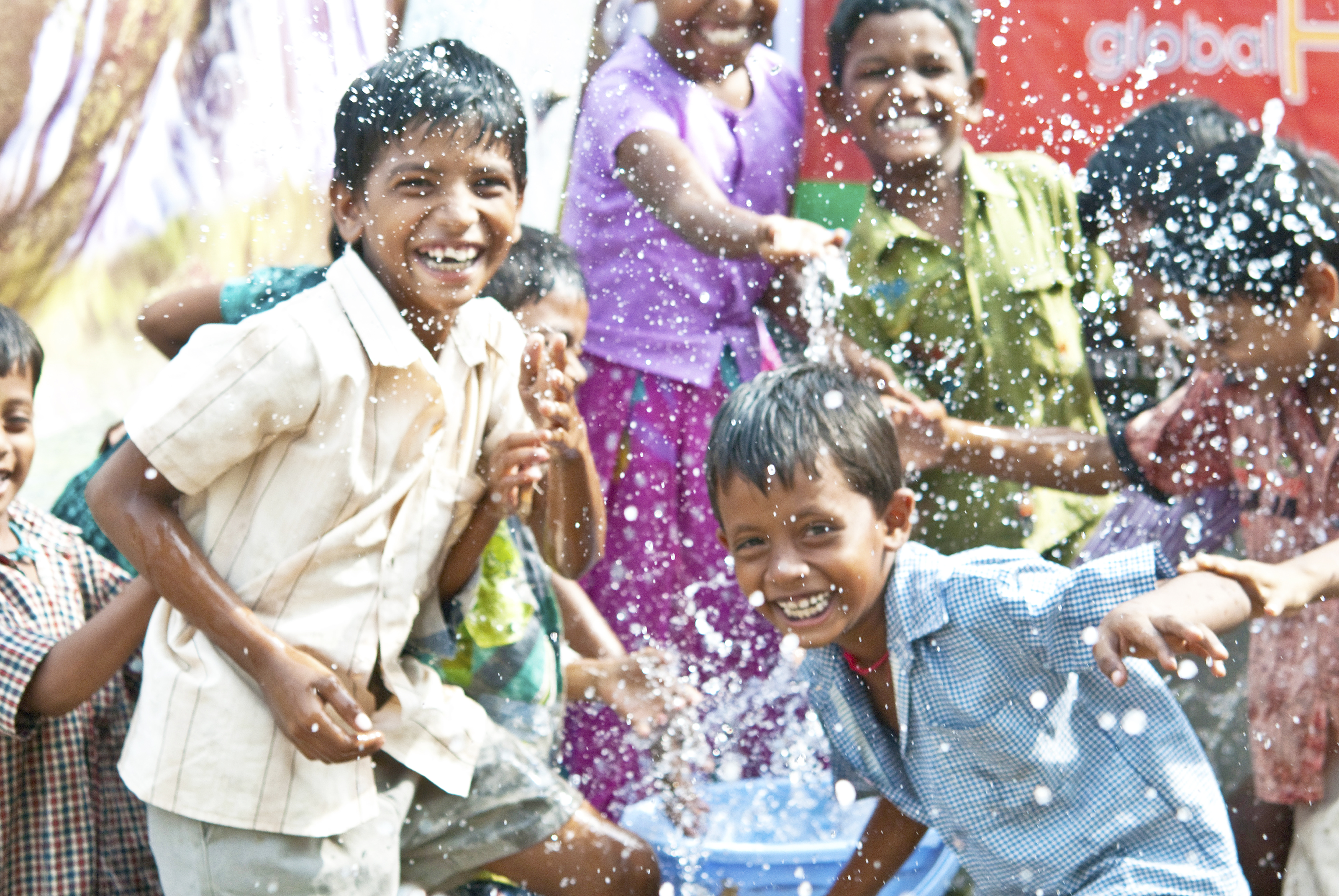
Carry the Water
In India, it is not uncommon for women to make six trips a day to retrieve enough water to support their household. The trips that are made in rural regions can average 10 miles a day, carrying up to 25 liters (almost 7 gallons) per trip. Each time, women load jars or buckets of water on their heads. The pressure from these containers, added with the distance walked, leads to back, feet, and posture problems.
Not only is carrying the water detrimental to these women’s health, but the water itself also poses a threat. Indian women are at a higher risk for infections due to frequent contact with unsanitary water. One example is trachoma, a water- washed disease that can lead to blindness if left untreated. Other diseases that can be contracted include hepatitis A, and leptosspirosis, an infection that spreads through water tainted by animal urine.
Imagine this scenario if you can: You are a 12 year old girl living in rural India, and you spend hours of your day helping your mother carry water home. Your family needs water for drinking, bathing, cooking, and raising livestock, so you often have to make multiple trips to have enough. Knowing that your family needs water to survive, you make these trips without complaint even though it means you miss out on school, leisure time, and the opportunity to one day have a job. The water you work so hard to collect isn’t even sanitary, and could actually hurt your family because it contains harmful bacteria. However, you collect it anyways because without it, your family would have no chance at all.

It is common for girls in rural India to drop out of school to help carry out the burden of moving water. Girls as young as ten contribute to this task, which makes them lag behind and miss class. This eventually causes them to abandon their education altogether.
According to one study, by reducing the time it takes to collect water by a mere 15 minutes, communities can help increase girls’ classroom attendance by 12%. Now, just imagine how much attendance would go up for girls if a well was built within ten minutes of their home.
The state of Andhra Pradesh has the highest number of trafficked women and child laborers in India. Due to severe poverty and regular drought, many rural families end up migrating to the urban center of Hyderabad. Human traffickers take advantage of this situation and trick women and children into flesh trade and human slavery.
Even when families do not migrate to urban areas they are still at risk as human traffickers often search areas where poverty is at its highest, telling parents that their daughters can find well-paid work in cities to support themselves and also send money back home. The girls are then taken and forced to work as prostitutes. Orphans and vulnerable children are forced into 16-hour work days making carpets or fire crackers, in roadside eateries, or as domestic help. They suffer the long hours of work and also many health hazards. Instead of the promised good life, at the tender age of 12 or 13, girls are brutally forced to sell their bodies or slog for 16 hours a day. By age 18, most have lost opportunities in life and accept their plight, continuing to live in their circumstances. Together we have helped establish the following:
- Asha Jyothi has 19 Children Homes for Orphan Children with 212 children
- Asha Back to School Program for children of single mothers= 555 children
- Asha Tuition Center= 18 Tuition Centers serving 470 kids, which provide free tuition to slum children whose parents are not educated to help them with their studies. This helps keep them in school.
- Asha Employable Skills Training Program for school dropout girls and single mothers=4670 trained and 89% of them are employed today. Saji John has made conscious efforts from the beginning to create income generating projects so that the operational costs of Asha Jyothi can be met. Since 2009, the ministry has generated income through the following projects:
- Asha Micro-Loan: Asha Microfinance has been in operation since October 2010 and they are glad to say that of the over 400 loans provided to their students until now not a single loan has defaulted on their payments. Most of these loans are given to ladies who go through the employable skills training program to set up micro-businesses. This has generated income every month since they began.
- Asha Garment Factory: Asha Garment Factory has been in operation for more than six years and broke even in the fourth month of operation. It now supplies garments to US/ Europe/South Africa and Australia
- Asha Books & Music: Established in October 2012, the bookshop has been a tremendous success. This program broke even in terms of operational costs in second month and in January 2013 they opened a coffee shop in the bookshop, which now offers counselling.
Be a part of the Carry the Water 5K and Fun Run at Dix Park on September 23rd . Join Saji John as he travels all the way to Raleigh from India. All proceeds will go to water projects in India. You AND your family can make a difference together. Register here: https://www.carrythewaternc.org/

